Have any questions?
+44 1234 567 890
Media Award
The Sepsis Media Prize is awarded annually with an endowment of 3,000 euros for an outstanding medical journalistic work on the subject of sepsis with the kind support of Thermo Fisher Scientific / B-R-A-H-M-S GmbH, Hennigsdorf. The award is intended to recognize the importance of medical journalistic reporting on sepsis, a disease that is widely underestimated by the public, and was first presented in 2008.
Introducing the Esteemed Jury for the Media Award of the German Sepsis Society
As the German Sepsis Society prepares to honor exceptional media contributions in raising awareness about sepsis, it is our pleasure to introduce the distinguished members of the esteemed jury panel. Comprising accomplished professionals from various fields, this jury possesses the expertise and experience necessary to evaluate the outstanding works submitted for consideration.
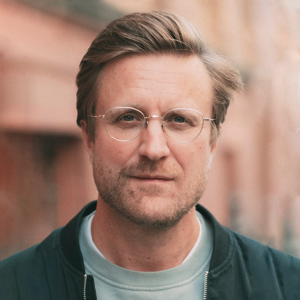
Carl Gierstorfer
Carl Gierstorfer is a German journalist and filmmaker. He has received several prizes, including the Grimme Award for the documentary "We Want You To Live—Liberia's Fight Against Ebola” and the German Sepsis Society's 2021 Media Award for the COVID-19 documentary "Charité Intensiv - Station 43". He was writer and director of "The Bloody Truth—how colonialism created the AIDS-pandemic" which was broadcast in over 25 countries.
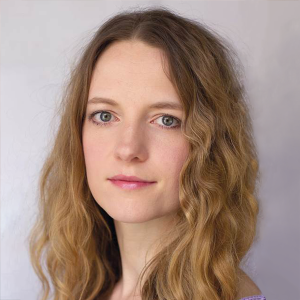
Mareike Müller
Mareike Müller is a German media scientist, journalist and filmmaker. Since 2013 she has been developing and realizing documentaries on social and scientific topics, primarily for ARTE and ARD. Her work has received several grants and awards, including the Grimme Award.
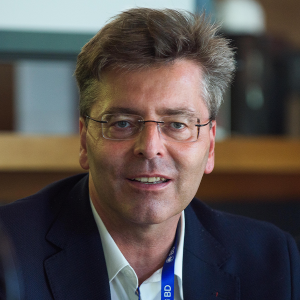
Markus Weigand
Markus Weigand is board member of the German Sepsis Society, director of the Department of Anaesthesiology and Intensive Care at Heidelberg University Hospital and author of multiple publications on the pathophysiology and management of sepsis.
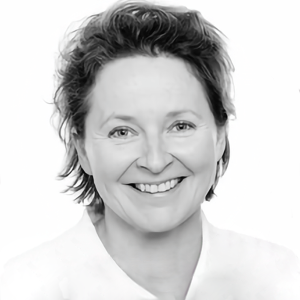
Annette von Butler
Annette von Butler is a communication scientist and member of the patient organization German Sepsis Aid. She is an affected sepsis survivor since 2018.
Media Award 2021
We are happy to announce the winner of the Media Award 2021 Carl Gierstorfer, freelance journalist and documentary filmmaker from Berlin. In his film "CHARITÉ INTENSIV: Station 43", he shares deep insights into healthcare workers working on their limit during the height of the COVID-19 pandemic.
For one winter, director Carl Gierstorfer and co-writer Mareike Müller's four-part documentary series observes an intensive care unit at Berlin's Charité hospital, at the height of the pandemic so far. The films provide an intimate glimpse into a world on the border between life and death, unknown to most.
You can watch it in German in the ARD media library.
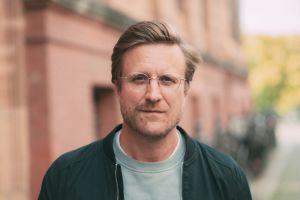
© Carl Gierstorfer/DOCDAYS/rbb
Day and night, they struggle for the lives of those who have been hit particularly hard by the Corona virus. Charité Intensive" tells the story of this struggle in a microcosm that knows no time of day, determined by bright lights and beeping machines.
Despite high-tech intensive care and great personal commitment, the staff repeatedly pushes the limits of what humans are capable of. They are confronted with a completely new disease that can damage the entire body and cause proven therapies to fail. Time and again, the experienced doctors and nurses have to accept the inevitable and let people go. At the end of a long shift, it often feels like giving up - and leaves a mark on those who stay.
For one winter, "Charité intensiv" observes Ward 43, one of Charité's intensive care units, at the height of the pandemic so far. The films provide an intimate glimpse into a world on the borderline between life and death, unknown to most.
Chapter 1: DYING | Chapter 2: FIGHTING | Chapter 3: HOPING | Chapter 4: BELIEVING
Then in April in the program of rbb on the 14th, 21st and 28th.
A film by: Carl Gierstorfer | Co-writer: Mareike Müller | Editing: Ronald Rist | Collaboration: Nele Huff | Picture design & sound: Carl Gierstorfer | Music: Tim Stanzel | Mixing & finishing: Stani Milkowski | Additional camera: Knut Schmitz | Drone: Sven Klöpper | Social media: Marcel Ozan Riedel & Fanny Steyer (rbb) | Production Manager: Ko Miklik | Producer: Antje Boehmert | Editors rbb: Ute Beutler, Barbara Lohoff
Charité intensive: Ward 43
For the Charité, which looks back on more than 300 years of tradition in treating and healing, this fateful winter is a chapter that makes history. This is also true for the doctors and nurses of Ward 43, an intensive care unit that is a microcosm without any time of day, dominated by bright lights and beeping machines. Day and night, they struggle here for the lives of those who have been hit particularly hard by the Corona virus. Always close to its protagonists, without commentary or showmanship, CHARITÉ INTENSIV tells of this struggle.
Despite high-tech intensive care and great personal commitment, the medical staff reaches the limits of what humans are capable of. They are confronted with a completely new disease that can damage the entire body and cause proven therapies to fail. Time and again, the experienced doctors and nurses must accept the inevitable and let people go. At the end of a long shift, it feels like giving up - and leaves a mark on those who stay.
For one winter, the four-part documentary series observes an intensive care unit at Berlin's Charité hospital at the height of the pandemic. It gives an unadulterated insight into a world on the borderline between life and death, unknown to most.
Episode 1: Dying
At the height of the second wave of the pandemic, the team in Intensive Care Unit 43 is pushed daily to the limits of what humans are capable of: proven therapies fail and covid patients who were thought to be stable suddenly deteriorate. Time and again, the experienced doctors and nurses have to capitulate and accept the inevitable. Death and dying are omnipresent.
Episode 2: Fighting
With all the resources of high-tech intensive care medicine, the team of Ward 43 struggles for the survival of its patients. Before their covid infection, they were in the midst of life; now they have to fight for it. The doctors and nurses try to perform medical miracles. The high mental and physical strain makes their work more difficult.
Episode 3: Hope
It motivates the entire ICU 43 team when Covid patients fight their way back to life despite a poor prognosis. For the patients, it's a long road: breathing, speaking, walking - they have to relearn what seems self-evident. At their side are the treatment team and their relatives - a community of destiny that together defies the hurdles of healing.
Episode 4: Faith
As the second wave of the pandemic subsides, the team at Station 43 catches its breath. On the borderline between life and death, the doctors and nurses have given intensive care medicine and themselves their all. Some Covid patients become the medical miracles they longed for, survivors of the pandemic. Many others don't make it. In the end, the team is faced with the question: what remains? And, looking at the recently rising numbers: What's next?
More information and broadcast dates can be found here.
Carl Gierstorfer, born 1975, grew up and graduated from high school in Viechtach, Bavarian Forest.
Studied biology at University College London, then editor in the Natural Science and Technology editorial department of ZDF.
Since 2006 freelance journalist and documentary filmmaker in Berlin.
Grimme Award 2017 for "Ebola - surviving the virus" (SWR / ARTE) - the story of Stanley Juah, who brought Ebola to his village, was threatened with death and sought forgiveness.
2019 Golden Nymph for Best International TV Documentary at the Monte Carlo TV Festival for "Dollar Heroes - North Korea's Secret Slaves" (ZDF / BBC). An investigative documentary about North Korea's worldwide network of forced laborers.
2015: "AIDS - Legacy of the Colonial Era" (ZDF / ARTE). The emergence of pandemics is closely entangled with social and contemporary history. This documentary accompanies scientists in the Democratic Republic of Congo. Using a medical archive, they trace the beginnings of AIDS back to colonial times, when during the "Scramble for Africa" the heart of the continent underwent tremendous social and political upheaval. I recently wrote about this in the Frankfurter Allgemeine Sonntagszeitung: https://www.faz.net/aktuell/wissen/hiv-ist-vom-affen-auf-den-menschen-uebergesprungen-wann-und-wo-17370574.html. Awarded the "One World Film Prize of the State of North Rhine-Westphalia" 2015.
As an author, Carl Gierstorfer directed more than a dozen documentaries and reports for national and international broadcasters (ARD, ZDF, Arte, BBC, PBS, Al Jazeera). For his latest documentary about the fate of an uncontacted people, he filmed over several years in the Peruvian Amazon (release 2021 / 2022). To get as close as possible to his characters, he shoots many of his documentaries himself.